Discover Let’s Hear It
Let’s Hear It

Let’s Hear It
Author: letshearitcast
Subscribed: 17Played: 175Subscribe
Share
© Copyright 2020 All rights reserved.
Description
Welcome to Let’s Hear It, a podcast about foundation and nonprofit communications (among other things), hosted by non-relatives Eric Brown and Kirk Brown.
Let’s Hear It is sponsored through the generous support of the College Futures Foundation, the Lumina Foundation, the Prebys Foundation, and the Stupski Foundation.
On Let’s Hear It, Kirk and Eric speak with leaders in the field about who they are, what makes them tick, and how they think about their work. These conversations are freewheeling and (we hope) fun. We’re serious – it’s not all serious.
Together, Eric and Kirk have worked in and around hundreds of foundations, nonprofits and campaigns. For over a decade, Eric was Communications Director at the William and Flora Hewlett Foundation, and now runs Brownbridge Strategies, a consulting firm that works with foundations and nonprofits on grantmaking, communications, and fundraising strategies.
Kirk is the former President of Resource Media, a nonprofit organization that provides communications support to environmental groups, and now runs Reach Strategies, a consulting firm that works with nonprofits, foundations and campaigns to sharpen their communications, strategic planning and evaluation strategies.
We hope that Let’s Hear It will provide insight into the people who run and work in foundations and nonprofits so that we can all find ways to do our jobs better and – oy, cliché alert – make the world a better place.
Let’s Hear It is sponsored through the generous support of the College Futures Foundation, the Lumina Foundation, the Prebys Foundation, and the Stupski Foundation.
On Let’s Hear It, Kirk and Eric speak with leaders in the field about who they are, what makes them tick, and how they think about their work. These conversations are freewheeling and (we hope) fun. We’re serious – it’s not all serious.
Together, Eric and Kirk have worked in and around hundreds of foundations, nonprofits and campaigns. For over a decade, Eric was Communications Director at the William and Flora Hewlett Foundation, and now runs Brownbridge Strategies, a consulting firm that works with foundations and nonprofits on grantmaking, communications, and fundraising strategies.
Kirk is the former President of Resource Media, a nonprofit organization that provides communications support to environmental groups, and now runs Reach Strategies, a consulting firm that works with nonprofits, foundations and campaigns to sharpen their communications, strategic planning and evaluation strategies.
We hope that Let’s Hear It will provide insight into the people who run and work in foundations and nonprofits so that we can all find ways to do our jobs better and – oy, cliché alert – make the world a better place.
116 Episodes
Reverse
AI needs power. A lot of power. But what happens when that power comes from 35 unpermitted gas turbines dropped into the middle of a historic Black neighborhood?
In this episode, Eric sits down with Dr. Sacoby Wilson, award-winning environmental health scientist and recent Heinz Award for the Environment honoree, who’s helping Boxtown in Memphis push back against Elon Musk’s xAI “Colossus” data center. Dr. Wilson breaks down how data centers are becoming the newest front in environmental and energy justice, why the pollution burden keeps landing on the same communities, and what they're doing about it.
We talk about “IMpowerment Science,” community air monitoring, climate redlining, regenerative agriculture, and what it really takes to turn data into power for frontline communities. Then Eric and Kirk reconnect to unpack what this fight says about philanthropy, technology, and who gets left out of our big, shiny visions of the future.
If this conversation hits home for you, follow Let’s Hear It and leave a quick rating or review—it helps more people find these stories and the people behind them.
On the latest Let’s Hear It, Eric sits down with the unstoppable Amanda Renteria, CEO of Code for America — and wow, is this one a shot of optimism for your civic soul.
From growing up in California’s Central Valley to becoming the first Latina Chief of Staff in the U.S. Senate, to running Hillary Clinton’s 2016 political operation, Amanda has seen power from every angle. Now she’s using all that experience to reimagine how government can actually work for people — with systems that are simple, fair, and human.
Amanda and Eric dig into how Code for America is helping states modernize public services, why good government is built in everyday interactions, and what gives her hope even in turbulent times.
A must-listen for anyone who still believes democracy works best when it works for everyone.
🎧 Listen now — and if Amanda’s optimism gives you a lift, don’t forget to follow, rate, and review Let’s Hear It wherever you get your podcasts.
Nonprofits are essential, but are they getting what they need to succeed? And what happens when philanthropy clings to old habits while democracy teeters?
In this episode, Eric sits down with writer, humorist, and nonprofit truth-teller Vu Le, creator of Nonprofit AF. With his trademark mix of sharp wit and blunt honesty, Vu pulls no punches on everything from “crappy funding practices” to the SkyMall-style whims of foundations, to the urgent need for philanthropy to get serious in defending democracy and the most vulnerable communities.
It’s not all fire and brimstone—Vu reminds us why joy itself is resistance, shares what keeps him hopeful (spoiler: snakes and the 3.5% rule), and even previews the joke-turned-fan-demanded one-man show you never knew you needed.
If you’ve ever wondered how nonprofits can thrive in spite of their funding structures this conversation is just what you’ve been waiting for.
💡 Vu’s new book Reimagining Nonprofits and Philanthropy comes out October 14, and Nonprofit AF returns to Substack on August 19.
In this episode of Let's Hear It, Eric sits down with two public interest comms powerhouses—Ann Searight Christiano and Angela Bradbery—who’ve just dropped what might be the most anticipated textbook in our field: Public Interest Communications Strategy for Change Makers.
Ann and Angela share how their years in the trenches at places like the Robert Wood Johnson Foundation and Public Citizen shaped this groundbreaking resource—and why storytelling, systems thinking, and listening (really listening) are the keys to actually making change. They discuss their “six spheres of influence,” the “back-of-the-envelope” strategy tool, and why being strategic isn’t the same as shouting into the void (no offense to your latest TikTok brainstorm).
It’s a lively, insightful conversation filled with warmth, humility, and a generous dose of “finally, someone wrote this down.” If you’ve ever had a boss say, “just make it go viral,” this one’s for you.
Enjoy the episode—and if you love it, don’t forget to follow, rate, and review. Your support helps others find the show (and helps keep us off TikTok, which we would suck at).
Let’s Hear It is back after a brief break—and we’re diving into one of the most powerful conversations we’ve had yet. In this episode, Eric sits down with Rachael Kagan, Director of Communications and Public Affairs at the Blue Shield of California Foundation. With a background in journalism and public health, Rachael has channeled her experience into creating The Journalist Playbook—a practical, compassionate, and groundbreaking tool for improving how domestic violence is covered in the media.
Together, they unpack the why and how of this innovative resource, the effect it’s already having across California newsrooms, and what it means to truly shift the narrative around domestic violence. This isn’t just a tool for reporters—it’s a model for how philanthropy, journalism, and advocacy can work together to drive lasting change.
You’ll also hear candid reflections on Rachael’s journey from the frontlines of health communications to the strategic heights of philanthropy, plus a moving reminder that domestic violence affects far more people than we may realize—58% of Californians, to be exact.
Find the playbook at LetsEndDV.org and the National Domestic Violence Hotline at 1-800-799-7233.
We’re thrilled to be back—thanks for welcoming us into your ears. Don’t forget to follow, rate, and review!
What makes an effective communicator in today’s chaotic political landscape? This week, Eric sits down with the legendary Doug Hattaway—founder of Hattaway Communications, political strategist, and storytelling expert—to find out. From his early days in journalism and politics to helping shape the way nonprofits, foundations, and campaigns communicate, Doug shares the lessons he’s learned along the way.
Together, they dive into why voting is expressive, not transactional, the role of AI in strategic messaging, and how we can bridge political divides through effective communication. Plus, Kirk and Eric unpack why the failure to build meaningful engagement infrastructure has led us to where we are today—and what needs to happen next.
If you care about messaging that actually moves people, don’t miss this.
Tune in, get inspired, and if you like what you hear, don’t forget to rate and review!
What’s the economy for, anyway? Shouldn’t time, happiness, and beauty be at the center of our lives? We know this sounds, er, quaint, given the times, but don’t we all need a bit of beauty right now? This week, Eric sits down with writer, filmmaker, and activist John de Graaf, whose decades-long career has been dedicated to challenging the culture of overwork, overconsumption, and environmental neglect.
From his groundbreaking PBS documentary Affluenza to his advocacy for shorter workweeks and his latest film project on the progressive, activist roots of America the Beautiful, John has consistently asked the big questions about what makes life truly worth living. In this thoughtful and engaging conversation, he shares his perspective on the bipartisan politics of beauty, how nature and shared public spaces can bring people together, and why he’s spent his life working his butt off so we don’t have to.
It’s a rich discussion full of humor, history, and a call to rethink what progress really means. And we really mean it.
Find John and his work at johndegraaf.com.
Loved this episode? Follow, rate, and review Let’s Hear It so more people can find these conversations.
Is Wikipedia the last bastion of truth on the internet?
Eric speaks with Anusha Alikhan, the Chief Communications Officer for the Wikimedia Foundation – the nonprofit behind Wikipedia, the internet's largest encyclopedia.
Anusha shares insights into how Wikipedia grew from a scrappy experiment into a trusted global resource with 50 billion monthly views and over 60 million articles in 334 languages. They discuss Wikipedia’s unique consensus-driven model, its fight against bias and misinformation, and the existential challenges posed by AI tools like ChatGPT, which heavily rely on Wikimedia’s vast trove of data.
Curious about the quirky side of Wikipedia? Anusha reveals some of her favorite fun facts, like professional ironing (yes, it’s a sport!) and "cute aggression." And for those worried about the future of truth in a world driven by algorithms, Anusha shares why she's optimistic, and why human editors will always be essential.
Eric and Kirk also explore the deeper question: What can philanthropy and society learn from Wikipedia’s transparent, collaborative model? From the importance of trust and knowledge equity to the challenges of surveillance capitalism, this conversation hits all the big questions about the internet’s past, present, and future.
Don’t miss this engaging and thought-provoking episode with one of the most insightful voices in nonprofit tech!
Be sure to rate, review, and subscribe so more people can discover Let's Hear It. See you next time!
It’s a brand-new year, a new season, and… a brand-new low? Nah!! This week, Let’s Hear It flips the script as co-host Eric Brown interviews the mystery man himself, Kirk Brown. That’s right—our favorite interlocutor steps into the hot seat to reflect on his fascinating journey from humble Iowan roots to becoming a nonprofit communications force of nature.
Kirk shares how growing up amidst Iowa’s agricultural rhythms and caucus-season chaos shaped his worldview, his approach to climate work, and his knack for community-driven solutions. You’ll hear about his leap into advocacy, running a nonprofit media shop, and his work founding Recharge America—a bold initiative sparking grassroots engagement around clean energy.
Expect laughs (we’re looking at you, Kirk’s Hollywood sunburn story), insights into the evolving communications landscape, and a big picture look at why creating enduring political constituencies is the secret sauce for real change.
Plus, Eric and Kirk dive into the big themes: How do we overcome disinformation, build local trust, and organize for meaningful, sustainable progress? This episode is packed with ideas for funders, advocates, and anyone passionate about driving change—community by community.
Join us as we kick off Season 7 with humor, heart, and some Kirk Brown wisdom you didn’t know you needed. And as always, please rate and review us wherever you listen—because it really helps more people find the show!
Need a dose of hope and perspective after a tough election season? Join Let's Hear It co-host Eric Brown for a conversation with Takema Robinson, CEO and co-founder of Converge, a social justice communications consulting firm.
Drawing on her background in art and African American studies, Takema brings a refreshing perspective on how imagination and creativity are essential for social change. She reminds us that even in challenging times, we need "imagineers" who can envision a more inclusive future.
After two decades of working with major foundations and nonprofits across the U.S., Takema shares practical wisdom about playing the long game when it comes to social justice. She emphasizes that real change happens over generations, not election cycles. From her current home base in Jamaica (the country, not Eric’s birthplace), she explains how stepping back has given her a broader view of America's challenges and opportunities.
The conversation tackles tough questions about what's next for racial justice and democracy after recent setbacks. Takema reminds us that we all need just a little space to process, breathe, and clear our heads before putting our shoulders to the wheel for the task ahead of us.
She points to encouraging signs of progress, like the growing infrastructure for civic engagement across the South, while acknowledging there's still much to do. As she puts it, the goal should be to "make America great for the first time" - building a truly inclusive democracy that works for everyone.
For foundation and nonprofit leaders feeling overwhelmed by current events, this episode offers a bit of comfort and a constructive path forward. Takema's blend of strategic thinking and heartfelt optimism provides a welcome antidote to, well, you know.
We know that these post-election blues are a thing, but here’s the deal – the need for climate justice isn’t changing. This week on Let’s Hear It, we’re diving deep into the work that’s pushing environmental justice to the forefront of philanthropy, policy, and big-dollar investments.
Eric sits down with Danielle Deane-Ryan, Senior Advisor to the EPA’s Greenhouse Gas Reduction Fund and a long-time climate justice funder. Danielle shares her journey from her roots in Trinidad and Tobago to the halls of power in Washington, breaking down how billions in clean energy investments can—and must—center the communities hit hardest by environmental injustice.
The conversation explores how policies like Justice40 and collaborations between grassroots leaders and major funders are changing the game. Danielle also doesn’t hold back when it comes to the communication gaps that still need fixing—and she’s got plenty of ideas for how to make progress stick.
Meanwhile, Kirk rallies the optimism brigade, Eric holds his ground, and they both agree – without good communications, even the best policies will fall short.
If you want to hear how leaders are tackling the climate crisis with equity, resilience, and serious grit, this episode is for you.
Don’t forget to rate and review us on Apple Podcasts—it helps others find the show!
Okay, folks, we know there’s an election happening and that you might be a bit, um, distracted. But one thing is sure, whatever happens this week, a clean energy economy is coming, and we need to do everything we can to make this transition work for everybody. So when you’re finished blowing into your paper bag, you might want to take a moment to think about the future.
In this episode of Let’s Hear It, hosts Eric sits down with Rachel Korberg , the Executive Director and co-founder of the Families and Workers Fund and David Etzwiler, the CEO of the Siemens Foundation to explore how philanthropy and business can team up to create an economy that works for everyone. Rachel and David share their insights into making the clean energy transition fair and accessible, with a focus on good jobs, workforce training, and equity.
The discussion centers on how their organizations are working together to push for an economy that includes all workers—especially women, people of color, and rural communities—in emerging fields like green energy.
Then, Kirk blows a gasket with excitement, Eric tries to talk him off the ledge, and they try to make sense of it all.
If you’re interested in how real change is happening at the intersection of philanthropy and business, this episode is a must-listen. And if you enjoy it, don’t forget to rate and review on Apple Podcasts to help others find the show!
Fans of Let’s Hear It (and there are oh-so many!) will acknowledge that Eric and Kirk get a little nutty about their guests sometimes. Well, this time, Marc Solomon of Civitas Public Affairs and William Foster of the Bridgespan Group drive Kirk and Eric to 11.
The topic this time is Marc’s and William’s new paper “Betting on the Tortoise: Policy Incrementalism and How Philanthropy’s Support Can Turn Small Sustained Steps into Big Impact,” co-written with Eric Chen and Zach Slobig.
The problem is that philanthropy is astonishingly timid about funding policy work (sorry, philanthropy). The thing is, Marc and William remind us about how smart philanthropy can make a huge difference in the kinds of policy wins that every wants – freedom to marry, increasing the minimum wage, and many more.
And then Kirk and Eric have what we humbly think is one of the funnier and more entertaining rants this season, so stick around for that.
Thanks for listening, and please, please, subscribe, rate, and review the show so more people can find us!
In this dandy episode of Let's Hear It, Eric Brown sits down with Grace Nicolette from the Center for Effective Philanthropy to make sense of the phenomenon that is MacKenzie Scott's revolutionary approach to giving.
Grace is the Vice President for Programming and External Relations at the Center for Effective Philanthropy and the co-host with Phil Buchanan of the really terrific (and we're not just saying that!), Giving Done Right Podcast, which kicked off its fourth season on September 19.
Grace shares fascinating insights from CEP's multi-year study of Scott's "surprise philanthropy" - those headline-grabbing, unsolicited gifts that have sent shockwaves through the nonprofit world. We're talking transformative levels of funding that have left many organizations asking, "Is this for real?"
But it's not just about the numbers. Grace dives into the meaty questions this approach raises: How are nonprofits handling this sudden influx of cash? Is this the end of strategic philanthropy as we know it? And what can other funders learn from Scott's bold experiment?
As a recipient of Scott's generosity themselves, CEP offers a unique insider-outsider perspective. Grace candidly discusses how their own $10 million gift has shaped their work and thinking.
Whether you're a nonprofit leader, a funder, or simply curious about how big money can create big change, this episode delivers. It's a thoughtful exploration of a philanthropic shake-up that's rewriting the rules of giving, delivered with CEP's signature blend of data-driven insights and real-world experience.
Tune in for a conversation that's sure to challenge your assumptions and maybe, just maybe, make you rethink everything you thought you knew about effective philanthropy.
Hey folks, we’re back after a quick summer break. Hope you missed us!
As many parents pack their kids off to college this month, it’s important to remember that almost two out of five college students in the U.S. attends a community college. These are students who are often working full time, caring for family members, or going back to school to learn new skills. Oh, and another thing, community colleges don’t brag about how “selective” they are – all are welcome.
Our guest on this episode of Let’s Hear It is Eloy Ortiz Oakley, the President and CEO of the College Futures Foundation – a California foundation helping students who are facing the greatest barriers to succeed in college and beyond. Eloy was previously the Chancellor of the California Community College system - the largest system of higher education in the United States, and third largest system of higher education in the world, serving more than 1.8 million students. He is also a former Regent of the University of California system. If anyone knows about what’s working and what’s not in higher education, it’s Eloy.
Eric and Eloy have a fascinating and wide-ranging conversation about Eloy’s own educational journey, the challenges of elitism in higher education, and role philanthropy can play in ensuring a more equitable system.
Sometimes it's okay to take a moment away from the massive challenges and simply laugh. Thanks to Esteban Gast and the organization he works for, Generation 180, we can even laugh about climate. Well, actually, Esteban helps us better understand how we can take actions that matter, understand that we're not alone, and have a little fun along the way.
Eric and Esteban giggle, chortle, and guffaw through this episode, reminding us all that there are SO many ways to communicate and not all of them involve PowerPoint and statistics.
We are so excited about ComNet24 in Kansas City!
When Sean Gibbons joined the Communications Network as its new leader a decade ago, he was tasked with leading an organization with 400 members and a staff of, um, himself and a ham sandwich. Today, the Network boasts over 4,000 members and a team of eight, reflecting Sean's infectious enthusiasm and vision for bringing communications professionals together.
And together we’ll be – in Kansas City from October 16-18.
Sean joins Chief of Staff Tristan Mohabir and VP of Community Carrie Clyne to talk with Eric about why ComNet 24 in Kansas City this October is a can't-miss event. They remind us how crucial in-person connections are in our increasingly digital world, and while they're at it, they showcase the innovative ways the Network is fostering community year-round through local groups, online Circles, and a bustling Slack workspace.
And stick around for a special opportunity to win dinner with Eric at a storied Kansas City steakhouse! Not kidding!
As we approach World Refugee Day, it’s so good to know that there are people like Suzanne Ehlers who are making an extraordinary difference and people’s lives and providing real hope for the future.
Suzanne is the Executive Director and CEO of USA for UNHCR, a nonprofit organization that supports the United Nations Refugee Agency. It helps raise awareness and makes funds available to aid refugees around the world, providing them with the resources and support they need to rebuild their lives after being forced to flee their homes due to conflict, persecution, or disaster.
Previously, Suzanne was CEO of Malala Fund, and before that she was President and CEO of Population Action International. She speaks with Eric about how she parlayed her temp job at the Wallace Global Fund to a career that led to her being named CEO of an organization that aims to raise a billion dollars over the next ten years.
Suzanne speaks with Eric about how she uses storytelling to inspire empathy for the millions of refugees in some 40 crisis hotspots around the globe who desperately need our help.
Oh, and she also happens to be fun, funny, and fabulous.
We hope you enjoy this really delightful conversation as much as we did.
A huge thank you to Fatima Angeles, the Executive Director of the Levi Strauss Foundation, for joining us on the latest episode of Let’s Hear It. Fatima talks with Eric about the Levi Strauss Foundation's groundbreaking work in areas like reproductive justice, worker rights, immigrant rights, and democracy.
Fatima discusses her 24-year tenure at Cal Wellness, where she gained invaluable experience in strategic grantmaking, evaluation, and program direction under foundation legends Judy Belk and Gary Yates. She reflects on how these roles prepared her for leading a very different kind of corporate foundation.
She chats with Eric about about the essential role of communications in philanthropy, the need for reducing administrative burdens (although she calls them "shenanigans"), and the importance of making sure that we fund organizations “like we want them to win.”
Tune in to hear Fatima's inspiring story and learn how the Levi Strauss Foundation is setting a new standard for corporate philanthropy.
Eleven years ago, David Callahan launched a most audacious project – a new publication that was going to get under the hood of philanthropy (to borrow from that great philosopher, Ross Perot) and expose the good, the bad, and the meh.
Some folks chortled, some scoffed, and some cast their eyes heavenward in the hope that he would shed a little light on the seemingly byzantine and obscure world of philanthropy.
Well, friends, Inside Philanthropy is bigger, better, and badder than ever and David speaks with us in a funny, fascinating, and terrifically candid conversation about the promise and perils of a sector that by some accounts represents a half a trillion dollars in annual giving. Think about that for a minute, then tune in to our latest episode of Let’s Hear It.







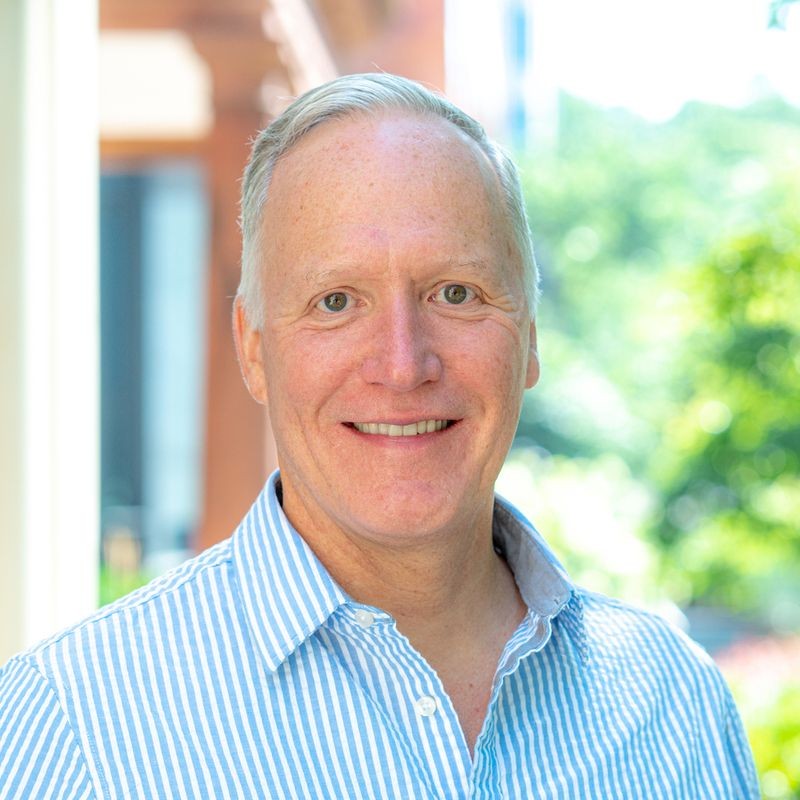
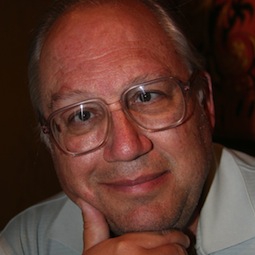
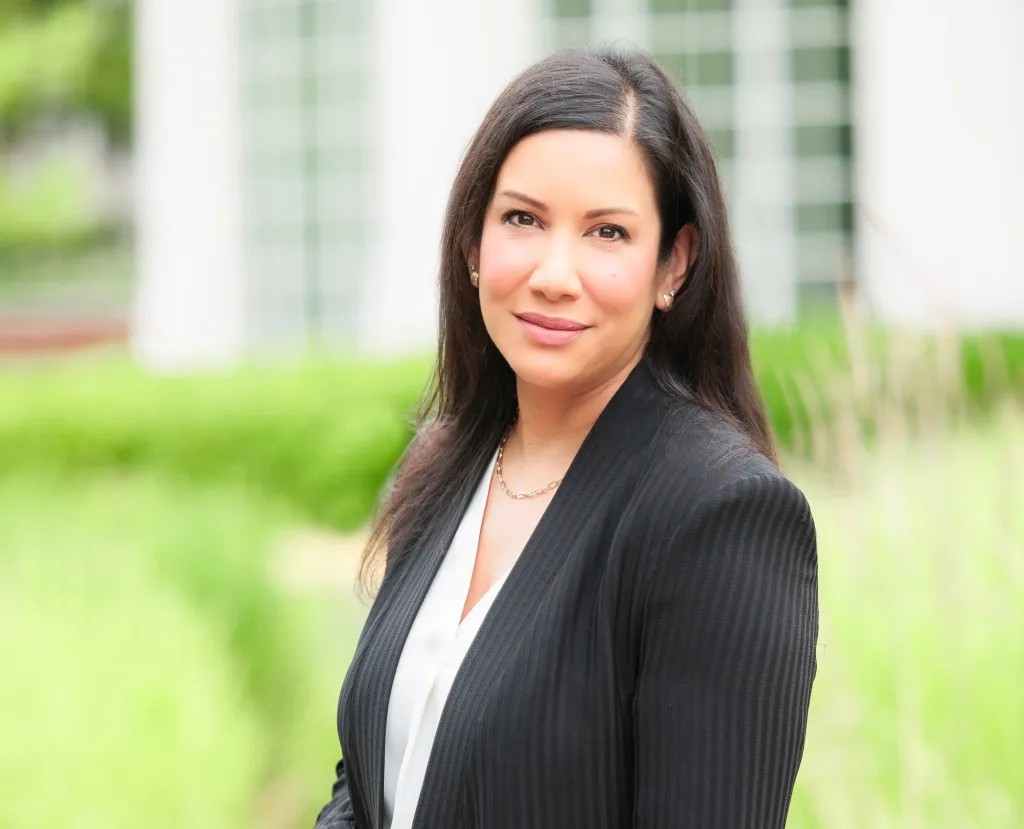

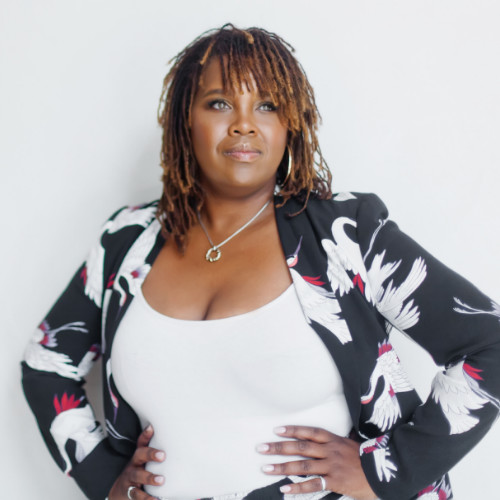
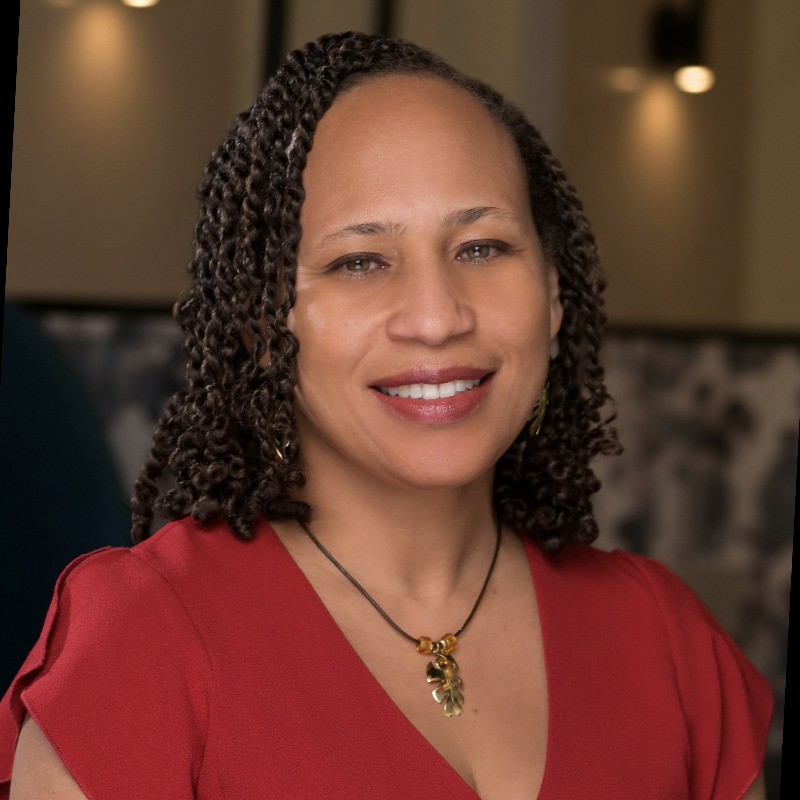
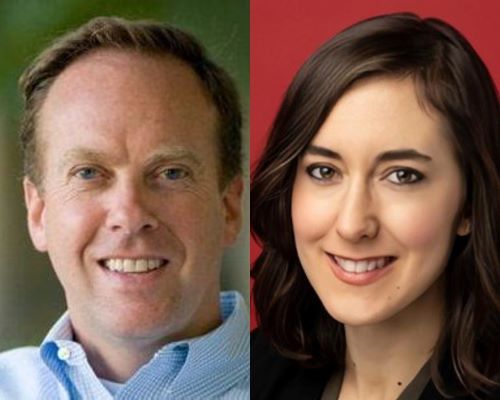
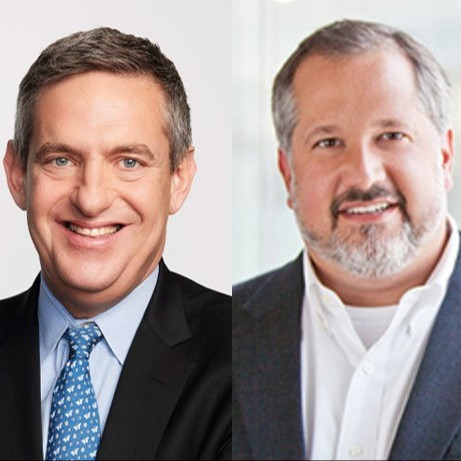
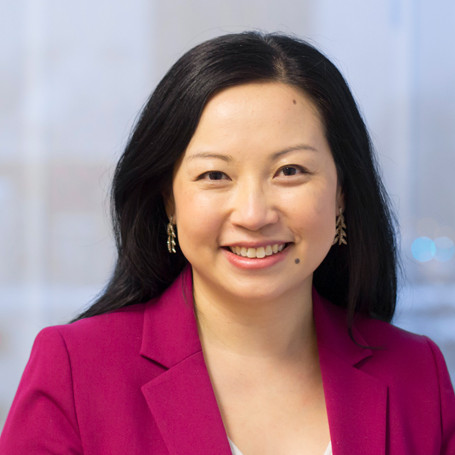
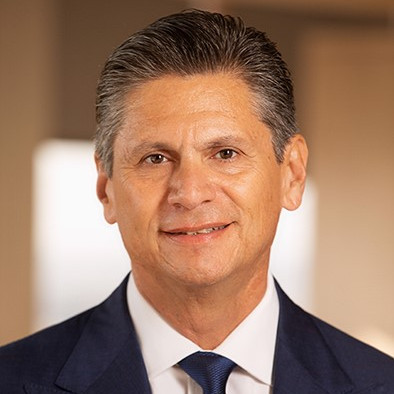


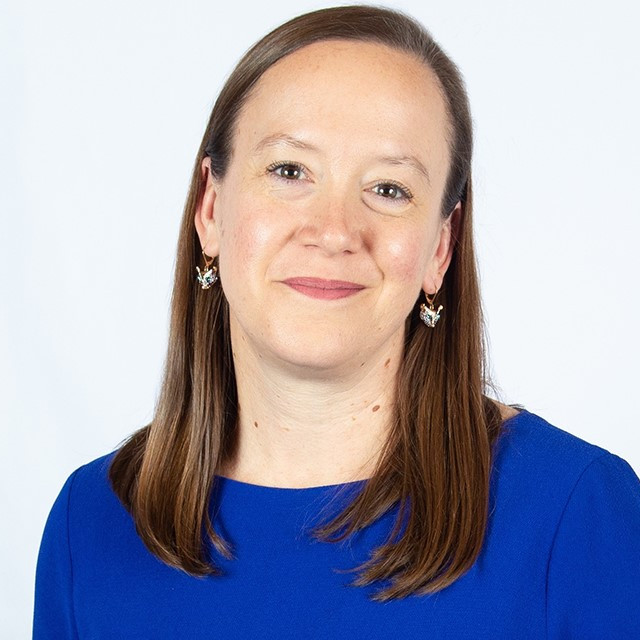
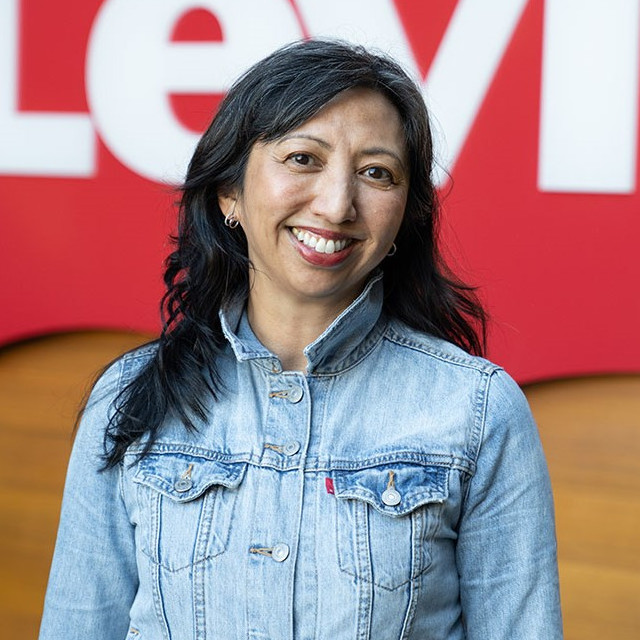
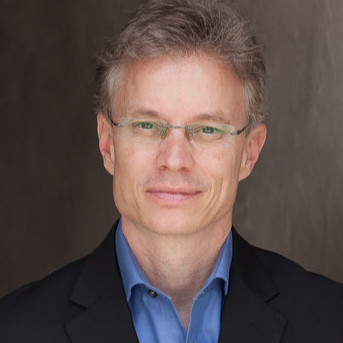



an Innocent man is in jail for something that he didn't do and he has proff